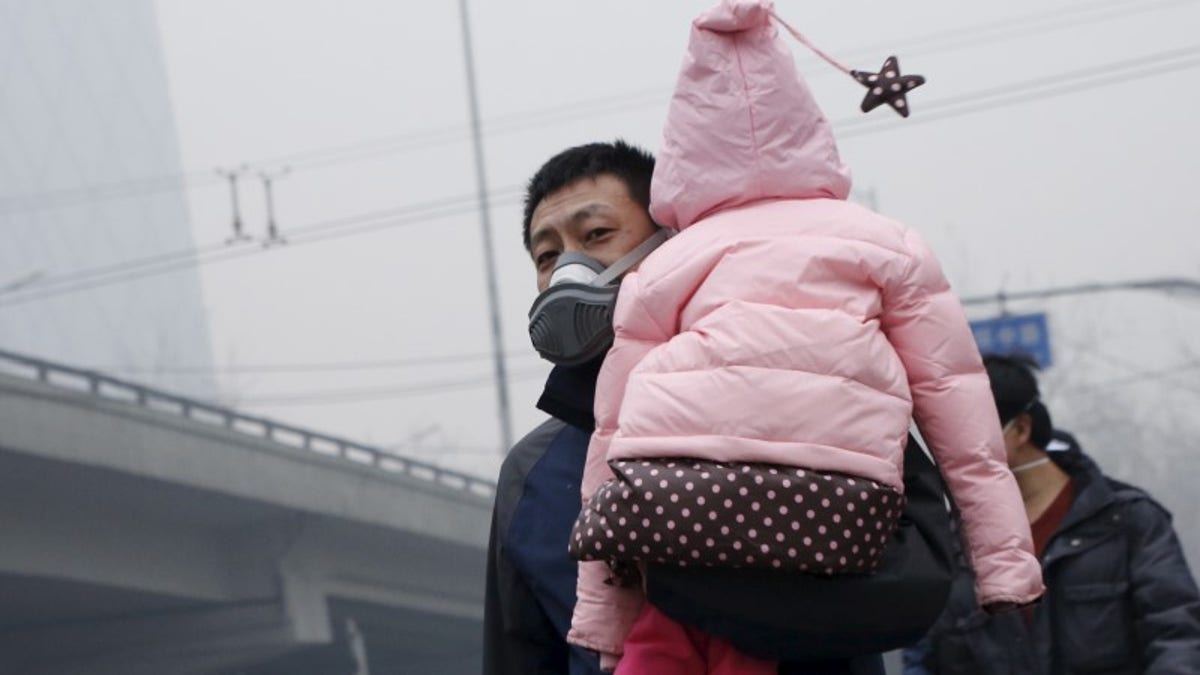
A man wearing a mask carries his baby on his shoulder amid heavy smog after the city issued its first ever "red alert" for air pollution, in Beijing (Copyright Reuters 2016)
Air quality improvements in southern California are tied to improvements in the respiratory health of children in that area, according to a new study.
While the researchers can't say for sure that cleaner air caused kids' breathing to improve, they believe their findings strongly support that theory.
"I think we can safely say this is one of the clearest pieces of scientific evidence to say reduction of air pollution can lead to improvement in respiratory health for children," said study leader Kiros Berhane, from the University of Southern California (USC) in Los Angeles.
At a teleconference Tuesday, Berhane and his USC colleagues said policies have led to significant reductions in pollution since 1992.
"In recent years we observed air pollution levels were coming down in southern California," said coauthor Dr. Frank Gilliland.
Coauthor Edward Avol noted that billions of dollars have been spent to replace school buses, trucks and other forms of transportation that produced too much pollution.
In eight southern California communities, the research team tracked three groups of children, ages five to 18 - one group from 1993 to 2001, another from 1996 to 2004, and the third from 2003 to 2012.
Altogether there were 4,602 youths, who entered the study at an average age of eight.
In general, decreases in air pollution (nitrogen dioxide, ozone and particulate matter) were tied to reduced odds of breathing problems for children with and without asthma when they were 10 and 15 years old.
The problems included coughing, congestion, phlegm in kids who didn't have a cold or the flu, or bronchitis.
The greatest reduction in breathing problems with improved air quality was seen in children with asthma. Boys, and youths from homes with dogs, also had larger declines in breathing problems, the authors reported in JAMA.
The researchers caution that the study has some limitations. For example, symptom assessment, based on questionnaire responses, was imprecise.
Still, Berhane said the findings are useful.
"They could inform policymakers to show that reductions in pollution can result in public health benefits," he said.